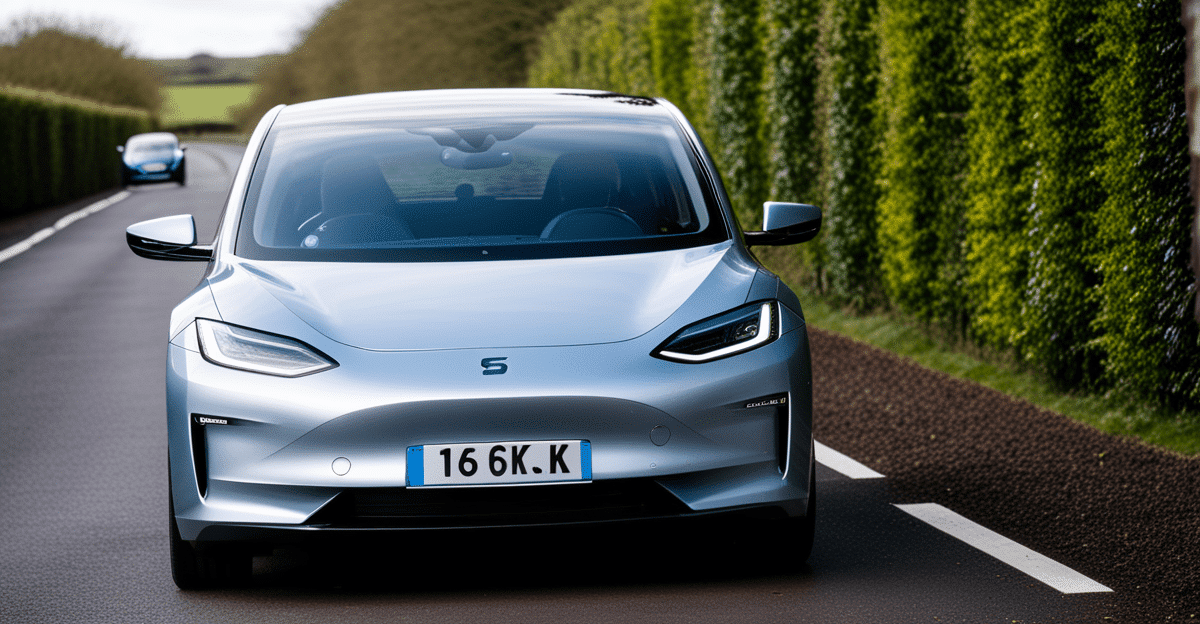Evolving Trends in the UK Electric Car Market
The UK electric car market has witnessed remarkable growth, with EV adoption UK accelerating as consumers embrace cleaner transportation options. This surge is largely driven by increasing environmental awareness and progressive government policies targeting net-zero emissions. Leading brands like Tesla, Nissan, and Volkswagen dominate the electric vehicle trends, offering popular models that cater to diverse driving needs.
Consumer preferences in the UK are shifting towards vehicles with longer ranges and faster charging capabilities. Compact SUVs and hatchbacks are particularly favored, as they balance efficiency and practicality. Additionally, there is a growing demand for vehicles equipped with advanced connectivity features and smart technology, reflecting broader digital lifestyle trends.
This might interest you : What role does AI play in the UK automotive industry’s future?
Urban areas see a higher concentration of EV adoption due to better charging infrastructure, whereas rural regions lag but are catching up through targeted investments. The market is also evolving as more affordable models enter the scene, expanding access beyond early adopters. Overall, the UK electric car market is defined by dynamic changes in consumer behavior, brand competition, and technological progress, ensuring a vibrant future for electric mobility.
Technological Advancements Shaping the Future
Technological progress underpins the rapid evolution of EV technology in the UK, markedly influencing the electric vehicle market. Battery innovations UK focus heavily on extending driving range and reducing charging times. For example, recent advances in solid-state batteries promise higher energy density and enhanced safety compared to traditional lithium-ion cells. This improvement directly addresses range anxiety, a significant barrier to EV adoption.
Also to read : What are the benefits of digital twins in UK automotive manufacturing?
Charging methods have also improved with faster and more accessible solutions. Ultra-rapid chargers capable of delivering up to 350 kW considerably shorten charging sessions, making electric vehicles more convenient for daily use. The proliferation of such chargers, combined with expanding UK EV charging infrastructure, supports growing EV adoption UK.
Beyond batteries and chargers, the integration of smart technology enriches user experience. Connected features, such as remote diagnostics, over-the-air software updates, and intelligent energy management systems, optimize vehicle performance and convenience. These electric vehicle advancements ensure that UK EV models stay competitive and aligned with consumer expectations for connectivity and efficiency.
Overall, ongoing EV technology and battery innovations UK are pivotal in shaping a sustainable and appealing electric car market. As breakthroughs continue, they will drive both the practical usability and desirability of electric vehicles across the UK.
Government Policies and Regulatory Framework
The UK EV government policy plays a crucial role in accelerating EV adoption UK by setting ambitious targets and providing financial incentives. Notably, the government has introduced electric car incentives UK such as grants that subsidize the purchase of new electric vehicles, reducing upfront costs. These incentives are complemented by tax exemptions and reduced vehicle excise duties, making EV ownership more financially accessible.
Recent clean transport policies target a phase-out of petrol and diesel cars by 2030, pushing manufacturers and consumers towards electrification. This deadline creates a clear regulatory framework encouraging investment and innovation in the UK electric car market. In addition, local authorities implement low emission zones and support infrastructure development to reinforce these policies.
Understanding these policies answers key questions: How does the UK government support EV adoption? Through grant schemes, tax breaks, and strict emissions targets, the UK government incentivizes consumers while motivating industry shifts. What impact will the phase-out deadline have? It accelerates market transformation and signals a long-term commitment to clean transport.
Together, these regulatory measures align economic incentives with environmental goals, fostering a robust environment for electric vehicle advancements and widespread EV adoption UK.
Charging Infrastructure Expansion and Investment
The expansion of UK EV charging infrastructure is crucial for sustaining the growth of the electric car market and increasing EV adoption UK. Public charging stations are rapidly multiplying, with significant investments from both government initiatives and private companies. This dual-sector funding accelerates the rollout of charging points, encompassing city centres, motorway service areas, and residential locations.
One key challenge is addressing disparities between urban and rural areas. Urban environments benefit from higher density charging networks, catering to more frequent use and supporting daily commuting needs. Conversely, rural regions face slower infrastructure growth due to geographic and economic factors. To overcome this, targeted investments focus on deploying fast chargers along major roads and improving local accessibility in less populated locations.
Additionally, innovations in charging technology—such as contactless payment systems and smart charging management—enhance user convenience. These advancements integrate with broader electric vehicle advancements that support seamless charging experiences.
The ongoing expansion ensures that as EV adoption UK rises, drivers encounter fewer barriers related to charging access. Building a robust and widespread UK EV charging infrastructure network directly correlates to consumer confidence and market growth, making it a linchpin for broader electric vehicle acceptance in the UK.
Market Forecast and Industry Analysis
Forecasts for the UK electric car market predict robust growth, with EV sales expected to rise significantly over the next decade. Industry experts highlight that this surge will not only boost EV adoption UK but also reshape the broader automotive landscape. Projections suggest electric vehicles could capture a majority share of new car sales by the late 2030s, driven by tightening emissions regulations and evolving consumer preferences.
The EV market analysis reveals that advancements in battery technology and decreasing costs are pivotal factors fueling this growth. Additionally, manufacturers investing in dedicated EV platforms foresee increased production efficiency and scalability. This transition brings economic opportunities, including the expansion of supply chains focused on electric drivetrains and battery components.
However, the automotive industry outlook UK also acknowledges challenges such as global supply constraints and the need for workforce reskilling. As the sector evolves, stakeholders must adapt to maintain competitiveness and sustainability. Strategic collaborations between carmakers, technology firms, and policymakers will be essential to harness growth potential.
In summary, the evolving UK electric car market presents a dynamic forecast of accelerated adoption and transformative industry shifts, underpinned by technological advances and market demand trends.
Challenges and Opportunities Ahead
Addressing EV adoption barriers remains critical for achieving widespread acceptance in the UK electric car market. Major obstacles include upfront costs, which deter some consumers despite existing electric car incentives UK. Range anxiety also persists, fueled by concerns over battery life and charging availability, highlighting the importance of continued battery innovations UK and expanded UK EV charging infrastructure.
Supply chain constraints and global semiconductor shortages impact vehicle availability, challenging manufacturers within the UK automotive industry outlook. Yet, these barriers also stimulate innovative strategies such as modular battery design and second-life battery applications to reduce costs and environmental impact.
Simultaneously, electric vehicle opportunities UK are emerging strongly. Job creation spans EV manufacturing, battery production, and charging network deployment. Skills development programs focus on workforce reskilling to meet evolving industry demands. Moreover, advancing clean transport policies fuels a green economy growth trajectory.
In essence, overcoming EV adoption barriers requires a multifaceted approach incorporating government support, technological progress, and industry collaboration. By tackling challenges head-on, the UK positions itself to capitalize on significant electric vehicle opportunities UK, driving both environmental benefits and economic resilience.










